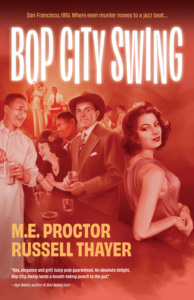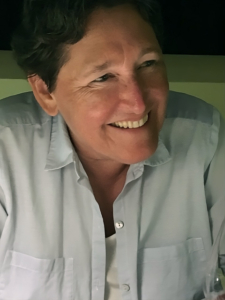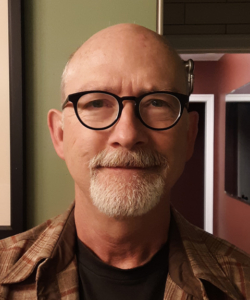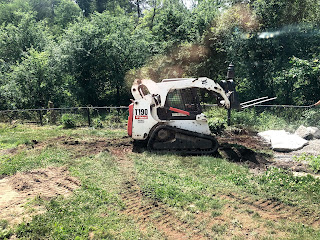Guest Author M.E. Proctor Bops into Historical Fiction Waters
 Bopping in Historical Waters
Bopping in Historical Waters
By M.E. Proctor
When I was a kid, I wanted to be an archeologist. I had romantic notions about digging in the Valley of the Kings, excavating the ruins of Troy, or following Percy Fawcett in his search for the lost city of Z—David Grann’s book had not been published yet or I would have known that was a no-no … the critters … yikes.
Adventure books contributed to my vocabulary (quirky), grasp of world geography (off the beaten track), and crossword cracking (obscure). They also developed a long-lasting interest in history. To this day, these are the bookshop shelves I go to first. Logically, I should write historical fiction instead of contemporary crime.
I know why I don’t. The problem is twofold.
First, I’m an impatient obsessive. It’s not as contradictory as it sounds. A few months ago, I wrote a piece for an anthology. The story takes place in 1640 C.E. in Ireland. I spent two months hopping from one rabbit hole to the next, gathering documentation, deeper and deeper. All for what ended up being a 6,000 words story. That’s the obsessive in me. Imagine what would happen if I decided to write a book. My impatient self shivers at the thought. Forty months of research? Before writing the first line? The historical fiction writers reading this will probably say that it isn’t that bad, that once the material is assembled the sailing is smooth, or that I need to be more focused, more organized in the search.
That’s where my second problem kicks in. I’m curious. If something smells good in that rabbit hole, I’ll go for it. What happened in that place a hundred years before, or a hundred years later? What about this character? I don’t picture historical research as an academic pursuit. To me, it’s the most tempting of candy stores, a place of delights where I want to pitch my tent and stay. I might never put a line on paper.
And that’s why I will never write a historical fiction book.
Yet, Bop City Swing is out in the world.
I was tricked.
Russel Thayer contacted me last year and suggested we write a short story in collaboration. We had both published pieces set in California in the 1940s and 50s, classic crime, inspired by the ‘noir’ movies we both love. His recurrent character is gun-for-hire Vivian, nicknamed Gunselle, and I had stories with SFPD homicide detective, Tom Keegan. Let’s bring them together. We didn’t think it would turn into a book.
I didn’t consider 1951 ‘historical fiction’. It isn’t a hundred years old—the marker for antiques—and women’s skirts didn’t sweep the floor, a visual cue that says ‘costume drama’.
Russell and I talked about plot and locations, decided to build the story around a political assassination, didn’t know what would happen next, and started writing.
The need for research became obvious right away. We needed an election year in San Francisco. That set the date, 1951, when incumbent mayor Robinson ran for a second term. We also needed a realistic scene for the crime and chose the Palace Hotel, still standing downtown. A stroke of luck delivered period-accurate floor plans. We didn’t know it yet, but these plans would be critical for the plot. We also gathered city maps and photographs.
Compared to my excursion to the 17th century, none of the work done for Bop City Swing was time-consuming, and the rabbit holes were few. Because we let the plot and the characters dictate the story. When we bumped into an anachronism or a historical impossibility, we adjusted the narrative. Minor modifications: change of address, different music selection. Ironically, the trickier part was shedding some of the language flotsam movies left behind. In the final draft, period slang and hardboiled expressions that leaned too much into Chandlerian back alleys were cut. They’re period-correct, but 2025 readers might blink.
Bop City Swing is neither an homage nor a pastiche, its ambition is just to be a damn good crime story. Historical? Maybe.
Bop City Swing
San Francisco. 1951.
Jazz is alive. On radios and turntables. In the electrifying Fillmore clubs, where hepcats bring their bebop brilliance to attentive audiences. In the posh downtown venues where big bands swing in the marble ballrooms of luxury hotels.
There the story begins, with the assassination of a campaigning politician during a fundraiser.
Homicide detective, Tom Keegan, is first on the scene. He’s eager, impatient, hot on the heels of the gunman. Gunselle, killer for hire, flew the coop, swept away in the rush of panicked guests. They both want to crack the case. Tom, because he’s never seen a puzzle he didn’t want to solve, no matter what the rules say. Gunselle, because she was hired to take out the candidate and somebody beat her to it. It was a big paycheck. It hurts. In her professional pride and wallet.
 M.E. Proctor was born in Brussels and lives in Texas. The first book in her Declan Shaw PI series, Love You Till Tuesday, came out from Shotgun Honey, with the follow up, Catch Me on a Blue Day, scheduled for 2025. She’s the author of a short story collection, Family and Other Ailments, and the co-author of a retro-noir novella, Bop City Swing. Her fiction has appeared in Vautrin, Tough, Rock and a Hard Place, Bristol Noir, Mystery Tribune, Shotgun Honey, Reckon Review, and Black Cat Weekly among others. She’s a Derringer nominee.
M.E. Proctor was born in Brussels and lives in Texas. The first book in her Declan Shaw PI series, Love You Till Tuesday, came out from Shotgun Honey, with the follow up, Catch Me on a Blue Day, scheduled for 2025. She’s the author of a short story collection, Family and Other Ailments, and the co-author of a retro-noir novella, Bop City Swing. Her fiction has appeared in Vautrin, Tough, Rock and a Hard Place, Bristol Noir, Mystery Tribune, Shotgun Honey, Reckon Review, and Black Cat Weekly among others. She’s a Derringer nominee.
Website: www.shawmystery.com
Substack: https://meproctor.substack.com
 Russell Thayer’s work has appeared in Tough, Roi Fainéant Press, Mystery Tribune, Close to the Bone, Bristol Noir, Cowboy Jamboree Press, Shotgun Honey, Rock and a Hard Place Press, Revolution John, Punk Noir Magazine, Expat Press, The Yard Crime Blog, and Outcast Press. He received his BA in English from the University of Washington, worked for decades at large printing companies, and lives in Missoula, Montana.
Russell Thayer’s work has appeared in Tough, Roi Fainéant Press, Mystery Tribune, Close to the Bone, Bristol Noir, Cowboy Jamboree Press, Shotgun Honey, Rock and a Hard Place Press, Revolution John, Punk Noir Magazine, Expat Press, The Yard Crime Blog, and Outcast Press. He received his BA in English from the University of Washington, worked for decades at large printing companies, and lives in Missoula, Montana.








I’m fascinated by your process and intrigued by your characters.
Thank you, Saralyn. This experience was very new to me. I’d never worked like that before.
What an interesting way to use your love of history without being overwhelmed by it. I like the fact that you let the characters take the lead instead of trying to push them into the historical events per se.
I was thinking, just yesterday, that I do not think of the period when I write. I have the set-up, the stage, which is “period”, but then I just let the movie roll.
As I struggle with an attempt to turn from my contemporary mystery series in order to write a historical fiction novel, I can totally relate to your 17th Century rabbit hole. Ugh! Hooray to you for finding something much more fun. Bop City Swing, great title. Best of luck with it.
Thank you, Gay! We’re working on a follow-up… it’s coming along nicely!
What a fun and honest look at your rabbit holes. Love this.
Ahaha! Thanks, Pam!
wxttkxesushlkdvjtqlfwdxmdoeuju